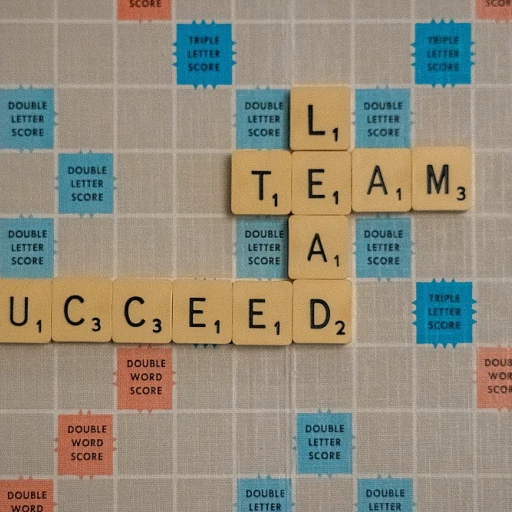
The Core Competencies of a CHRO
Core Skills for Effective CHROs
Understanding the core skills required for a Chief Human Resources Officer (CHRO) is crucial for anyone aspiring to excel in this role. The CHRO position involves a blend of cognitive skills, soft skills, and technical skills, all of which need to be honed continuously to meet the demands of a dynamic workforce. A CHRO must evaluate the skill gaps within the organization, especially focusing on both hard and soft skills. This assessment helps in designing effective training programs that foster employee growth and skill development. By addressing these gaps, CHROs support employees in achieving their full potential through structured training and development programs, which are often part of broader workforce education and vocational education initiatives designed to meet both current and future organizational needs. Skills development is not static; it requires continuous learning and adaptability. A CHRO must pave the way for their team by encouraging participation in opportunities for learning and growth, ensuring employees keep pace with job demands and professional advancements. Furthermore, they need to develop a strategic vision that incorporates both traditional and emerging education avenues like TVET and online learning platforms, offering flexible learning options for diverse employee needs. Emphasizing competency development and enhancement of emotional intelligence allows CHROs to navigate the challenges of changing work environments, impacting employee engagement positively. To learn more about how to reflect and learn from these processes, consider exploring enhancing skills for Chief Human Resources Officers.Strategic Vision and Planning
Crafting a Long-term Vision
In today's evolving workforce, a Chief Human Resources Officer (CHRO) must possess a strategic vision that aligns with company objectives while considering the ever-changing landscape of human capital. The ability to foresee and plan for future workforce needs involves skill development that is pivotal in ensuring success. It requires not only an awareness of current workforce capabilities but also an understanding of potential skill gaps. Embedding both hard skills and soft skills into strategic plans is crucial. For instance, technical skills are essential for employees in a tech-driven era, while cognitive skills and problem-solving abilities are necessary for dynamic, fast-paced environments. By prioritizing competency development and continuous learning, CHROs can effectively prepare teams for future challenges.Strategic Thinking and Implementation
Strategic vision in HR goes beyond planning—it encompasses implementing development programs that focus on the growth of individuals and teams. Training programs and employee education should be structured to offer opportunities for both vocational education and skills development. The integration of targeted learning, such as job-specific training, aids in fostering an environment conducive to skill enhancement. Moreover, CHROs must balance long-term goals with real-time adjustments to workforce strategies. This dual focus helps in catering to immediate organizational needs without losing sight of the company's overarching mission. Programs that provide work-based learning and skill enhancement are key to bridging short-term requirements with long-term aspirations.Adapting to New Challenges
In this role, adapting strategies to address new and unforeseen challenges is imperative. Creating adaptable training programs ensures employees can meet and exceed expectations in dynamic scenarios. The role of a CHRO is about anticipating the shifts in industry trends and preparing the workforce accordingly. This forward-thinking approach involves not just skill development but also promoting a culture of flexible skillsets among employees. In essence, the strategic vision of a CHRO transcends traditional HR practices by incorporating a holistic understanding of education and training dynamics. With numerous skill development opportunities such as TVET (Technical and Vocational Education and Training), CHROs can boost capability, performance, and satisfaction among employees, ultimately driving the organization's success. For further insights on how to enhance these capabilities and integrate strategic vision effectively, explore unveiling the essential skills of a chief human resources officer with Jana AI.Emotional Intelligence in HR Leadership
Building Emotional Acumen for HR Leaders
Emotional intelligence is an essential skill for any Chief Human Resources Officer (CHRO) navigating the dynamic and people-focused landscape of modern organizations. It involves the capability to understand and manage one's own emotions while empathizing with the feelings and needs of others. Embracing emotional intelligence in HR leadership not only fosters a resilient workforce but also aids in identifying and bridging skill gaps.
HR leaders can help employees through targeted skill development and growth opportunities, tailored to the unique attributes of each individual. Building this emotional acumen involves:
- Active Listening: Developing the ability to truly listen and understand employees' concerns or suggestions, paving the path for effective communication and learning.
- Empathy: Cultivating empathy to create a supportive work environment that encourages open dialogue and addresses employee well-being.
- Conflict Resolution: Mastering soft skills and cognitive skills to mediate conflicts and foster cooperative interactions within teams.
- Self-awareness: Continuous learning in recognizing one’s inherent biases and emotional triggers, allows for better workforce management and personal growth.
Emotional intelligence in training programs is a long-term investment into the health and productivity of any organization, ensuring that employees feel valued and understood. It also serves as a foundation for other critical competencies like strategic vision or technological proficiency, which were discussed previously. Developing this capability is integral to competency development and enhancing job satisfaction across sectors, including vocational education and TVET initiatives.
Navigating Change Management
Guiding Through Transformation
Change is an inevitable part of any organization’s journey. A Chief Human Resources Officer (CHRO) must possess the skills necessary to navigate and manage changes effectively. This includes developing skills in change management, an area where competency development is critical for long-term success. The CHRO serves as a cornerstone, not only helping to initiate transformation but ensuring its successful execution by applying both soft skills and technical skills. Emotional intelligence becomes indispensable in this context, allowing HR leaders to empathize with employees and understand the emotional undercurrents that may accompany change.- Communication: A CHRO must articulate the vision behind a change, detailing the rationale and potential benefits for employees and the organization as a whole. This transparency helps individuals within the workforce understand their role in the bigger picture.
- Problem Solving: Addressing unforeseen challenges demands strong problem-solving skills. Whether it's dealing with resistance or skill gaps, a CHRO should apply cognitive skills to devise strategies that are both innovative and practical.
- Training and Development Programs: Change often necessitates new skills and knowledge. Implementing training programs tailored to skill enhancement ensures employees are prepared to embrace and thrive amidst transformation, thereby turning potential obstacles into opportunities for growth.
Leveraging Technological Tools
Today's evolving workplace demands technological proficiency, making it essential for the CHRO to not only adapt but also leverage digital tools to streamline processes and offer real-time support. This requires ongoing education and continuous learning in emerging technologies to meet the diverse needs of the modern workforce. Change should not be seen solely as a challenge but as an opportunity for workforce development. By investing time in developing skills through vocational education and other means, a CHRO can help cultivate an adaptable, resilient team prepared for whatever the future holds.Technological Proficiency in HR
Embracing Technological Advancements in Human Resources
In the ever-evolving landscape of Human Resources, technological proficiency stands as a cornerstone for any Chief Human Resources Officer (CHRO) seeking to spearhead development initiatives efficiently. HR professionals must stay abreast with technological advancements and how they impact the workforce and operations. Here, we explore how technological skills are essential for effective HR leadership. First and foremost, data analytics has become an indispensable tool for CHROs. It aids in understanding employee behavior and can significantly enhance decision-making processes. By leveraging data, CHROs can identify skill gaps efficiently and develop targeted training programs to address these deficiencies. This approach not only facilitates smart workforce management but also fosters a culture of continuous learning and skill development. Moreover, with the rise of digital tools, CHROs are expected to incorporate technological solutions in employee training and development programs. Whether through virtual reality for vocational education or online training platforms, utilizing technology enhances training's efficiency and accessibility. Digital tools facilitate the development of both hard and soft skills by customizing learning experiences for individuals based on their needs, paving the way for comprehensive competency development. The integration of cloud-based platforms enables seamless communication across various departments, aiding in better coordination and job efficiency. Such technological solutions empower employees by providing easy access to learning materials, records of their competencies, and available development opportunities, ensuring they're not just learning but growing. Additionally, technological advancements bring forth new methodologies in performance tracking and management. As CHROs incorporate these innovations, the ability to adapt to ongoing changes in HR technology becomes crucial. It's about harnessing technology to enhance employee skills and drive long-term growth rather than simply keeping up with trends. Finally, while the technical side of human resources is expanding, maintaining a balance is key. A proficient CHRO combines emotional intelligence in leadership alongside technological prowess, such that employees remain at the heart of development programs. By doing so, they help ensure robust cognitive skills and problem-solving abilities are fostered within the workforce, thus propelling both individual and organizational growth effectively.Continuous Learning and Adaptability
Embracing a Mindset of Lifelong Education and Growth
To effectively navigate the rapidly evolving world of human resources, continuous learning and adaptability stand as pivotal competencies for a Chief Human Resources Officer (CHRO). In a field where skills development and employee skill enhancement are ever-changing, the ability to continuously learn becomes a necessity rather than just an asset.
A CHRO must foster an environment that encourages continuous learning within the organization. This can be achieved by implementing development programs that target both soft skills such as problem solving and emotional intelligence, as well as hard skills including technical skills. These programs should be adaptable, matching the dynamic nature of the workforce and addressing any evident skill gaps present in employees. By doing so, employers ensure that individuals are equipped with the necessary tools to excel in their jobs now and in the future.
Moreover, creating opportunities for professional growth through training programs and vocational education is essential in cultivating a competitive and competent workforce. Providing resources for skill development not only benefits the individual employee but also contributes significantly to the long-term success of the organization. By integrating personalized employee training, directed towards specific development skill areas, organizations can cultivate leaders and innovators.
Additionally, the ability to remain adaptable correlates with a CHRO's capacity to manage change effectively. It aligns with navigating change management, where understanding the implications of adopting new strategies and technologies plays a role in the advancement of CHRO responsibilities. Adopting emergent technologies and methodologies relevant to HR not only aids in technological proficiency but also enhances the agility of operations.
Ultimately, a CHRO championing a lifelong learning culture through targeted skill development initiatives empowers the workforce to meet future challenges with resilience and adaptability. This approach ensures that both the organization and its employees continue to thrive and evolve, even amidst a fast-paced and dynamic job market.













